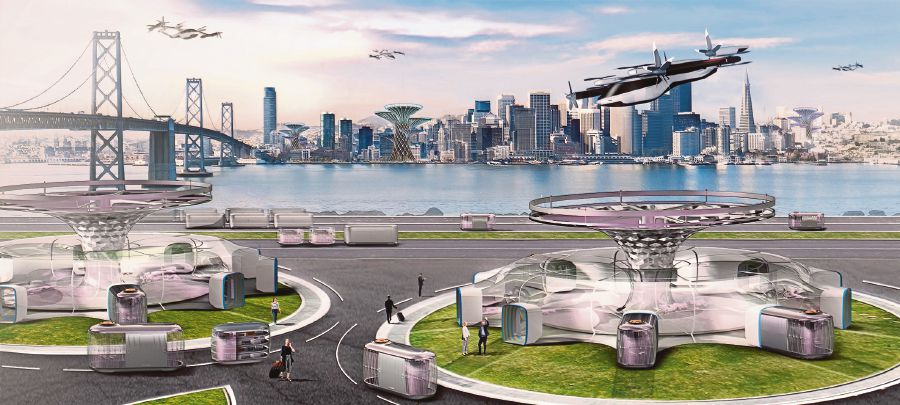CONCEPT models, while rarely ever making it to the production line, serve as a benchmark for measuring a carmaker’s capabilities.
Often seen on the pedestals of auto shows, each is a sleek packaging of innovation that gives us a glimpse of what future lifestyles would be like.
Recent announcements seem to indicate that manufacturers are keeping their focus on comfort and safety while at the same time encouraging travellers to discover new places regardless the distance.
With electric vehicle, self-driving and smart mobility becoming a major theme in concept cars, people can expect more than just be moved from point A to B.
A view of the video made on the concept car from Audi, the AI:Trail for example, seems like a sure hook for those who are active outdoors.
This concept car incorporates drones as headlights and imaging tool. While off-roading capabilities and drones are not new technologies, the combination proved to be refreshing.
Having extra illumination not only made the path ahead brighter for the AI:Trail driver but also increase safety as the drones are able to be used as spotlights to escort the driver and passengers safely from the vehicle to home or campsite. With cameras fitted to the drones, images can be captured and sent back to the driver to gauge its surroundings.
The AI:Trail’s Light Pathfinder drones are not the only feature that made this concept car interesting. Another addition, the rear passenger seats are made removable so that people can use it like a hammock for seating outdoors.
Another concept car that offers drone technology is the Lexus LF-30 Electrified. While Audi uses drone to provide light and images, Lexus’ futuristic model envision the drone as a support unit. Aptly called Lexus Airporter, the flat, tray-like unit can be used for tasks like carrying a luggage bag from the home into the car.
The appeal of units such as the Airporter and Light Pathfinder make it easy for auto fans to wonder how else the drone and relevant technologies can be fused into automobiles.
Imagine having a drone that plays the role of a scout that could collect data on road conditions ahead or provide the bird-eye view to enhance a car’s lane-assist system.
Meanwhile, the Lexus LF-30 would also likely be one that will appeal to travellers as it comes with bucket seats with “artificial muscle technology” that can mould itself to suit the body of their occupants. Be it driver or passenger, longer trips will become more bearable.
Speaking of comfort, Volvo 360c has a different way of fusing comfort and autonomous technologies. Designed to revolutionise personal transportation, the 360c offers a chance to have fun, be productive or even just sleep during travelling.
And true to the brand’s paragon standard of safety, Volvo, with the 360c, also introduced a proposal for a standardised autonomous vehicle communication system that will enable other road users and autonomous vehicles to understand what the vehicle will do next.
Another concept car showcased last year was the Mercedes-Benz Vision Urbanetic.
The Urbanetic has a different idea of transporting people and goods. Offering switchable bodies, this self-driving capable vehicle is made to transport up to 12 people in ride-sharing mode or send packages in delivery mode using its variable load floor. If further customised to include a ramp, this vehicle will also appeal to users with special needs such as wheelchair-bound passengers.
Hyundai also plans to change everyday commute using its Personal Air Vehicle (PAV). Slotted for a reveal at the upcoming Consumer Electronics Show (CES) 2020, the PAV is part of Hyundai’s vision of a future urbanscape. Only time will tell if our cities will be ready for a sky filled with PAVs, but with Malaysia’s interest in flying cars it will not be cool to rule out any possibilities.
Other manufacturers like BMW, Volkswagen, Daimler, Nissan, Honda, Toyota and even startups like Byton have already set up booth at the same show. BMW will be taking luxury travel a notch up with its i3 Urban Suite car that has larger seats that come with a personal Sound Zone and a screen that flips down from its headliner. Volkswagen SPACE Vizzion also focuses on info and entertainment serving with 15.6-inch touchscreen onboard.
As we look forward to more auto shows in 2020 and events such as the CES (which will take place next week), we can only hope that these wonderful innovations will come to be part of our lives soon enough.





